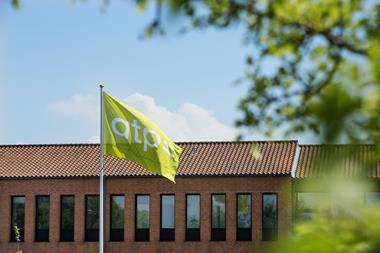Having re-weighted its entire listed equities portfolio to agree with climate transition-friendly criteria, Denmark’s DKK166bn (€22.3bn) pension fund PenSam is continuing to target unlisted renewable energy assets - a drive that will contribute to an expansion of its already substantial alternatives allocation.
In an interview, the fund’s investment chief rejected the idea that PenSam was competing in what may seem a race by the country’s pension funds to shed fossil fuel investments - saying the point is to minimise risk by aligning the portfolio to the inevitable low-carbon transition.
Claus Jørgensen, CIO of PenSam, told IPE Real Assets: “There are three pillars to the way we tackle the issue of climate change in the portfolio - we exclude some companies from a risk perspective, we have engagement where we try, in collaboration with other investors, to push companies, and we also do impact investments.”
As the latter are very complex investments in, for example, wind and solar power, he said PenSam undertakes them as part of the AIP partnership the fund joined in 2018.
In fact, Jørgensen’s involvement with AIP goes back much further than that, as he was part of the investment team of pension fund manager PKA when it established the forerunner to AIP back in 2012.
It was through AIP that PenSam and PKA invested DKK1.7bn in April 2020 in two solar energy plants in California and Texas owned by US renewables developer Longroad Energy.
These and other impact investments PenSam makes through AIP are part of the pension fund’s overall allocation to alternatives, which at currently around 35% for the larger of its portfolios, is high compared to the provider’s peers - and set to rise still further.
“We are increasing the weighting to unlisted assets - not to all alternatives, but we are looking to increase our real estate allocation and also that of illiquid credit,” he said.
“We are looking to increase that by 5% to 7% in the next four to five years,” Jørgensen said.
“The general idea with alternatives is that we can get a better return for the risk in these assets, and we believe we have the right long-term horizon for that,” he said.
At the end of February 2020, PenSam announced it had switched weightings in its then €4.8bn passively-managed listed global equities portfolio - changing the benchmark to the MSCI All Country World Index (ACWI) Climate index from the plain vanilla version it used before.
Also last year, the pension fund excluded certain stocks after tightening its coal criterion - setting a rule that it would not invest in companies with more than 5% of their activities in coal.
Mikael Bek, head of ESG at PenSam, said: “Long term we think it’s a bad idea to be invested in fossil fuels, because in next 20 years, the IEA has said we need to reduce their use by 75% in order to meet the goals of the Paris agreement.”
Jørgensen said PenSam was not divesting fossil fuel firms as some kind of competition with other pension funds.
“We’re selling off because we want to be part of this transformation to clean energy. Our main concern is that from our perspective we want to bring down our exposure to fossil fuels, because there’s a big risk that a lot of companies will have real problems in the future with this transformation,” he said.
In its search for new alternative investments, PenSam is keen to find good partners to invest with - preferably in the mould of its existing cooperations such as that with PKA, and also its private equity partnership with US pension fund TIAA via its asset management unit Nuveen.
“We don’t think we are able to in many cases get the best exposure and invest in the cheapest possible way by doing it ourselves, so we need it to get volume - and also get access to the best people,” he said, adding that AIP, for example, now has a team of some 40 specialists.
“We talk to a lot of people, but we need partnerships that have the same perspective on investments as we have. PKA, for instance, has the same approach as us, and is looking for the same risk-return level,” he said.
But alternative investments have been highlighted recently by the Danish Competition and Consumer Authority as being more expensive for pension providers. Does PenSam believe the higher costs are justified?
“Our starting point is return after costs,” Jørgensen responded.
“On the other hand, we are aware that we are compared to our peers, so we have to have costs at reasonable levels.
“That’s why we have partnerships - our partnership with Nuveen brings down costs substantially and we are exploiting the co-investments in those funds, so we don’t pay management fees and carry on those funds, and that changes the picture quite a bit,” the CIO said.
To read the digital edition of the latest IPE Real Assets magazine click here.














